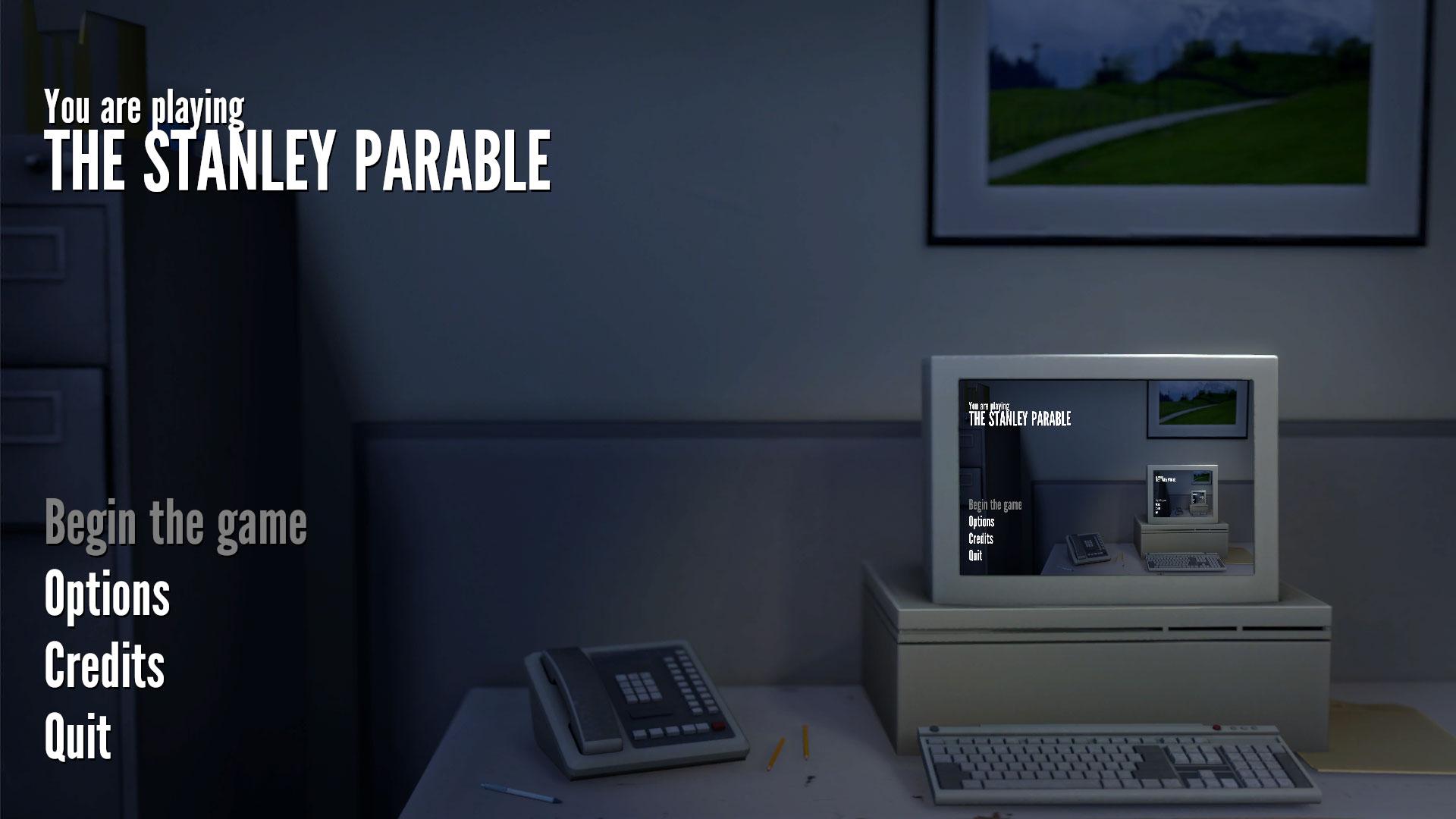One of my favorite philosophical subjects is that of predestination, primarily because “predestination” is continually supported by psychological research that operates under the assumption that human behavior is governed by reactions to stimuli. A vast amount of people, however, still prescribe to the intuitive concept of free will. This comes out in the very way we communicate with each other. For example, very few people would prefer saying “I saw ice cream, and because I like ice cream, was motivated to purchase ice cream” over the simple “I decided to purchase ice cream”. In fact many people who I have talked to about free will and psychology prefer the notion that they are independent of external influences.
Naturally, the development of video games reflects this
folk-logic, and caters very much to providing options to the players. Games
like the Elder Scrolls franchise presents a starting player with a wealth of
options for developing your character, from customizing the appearance of your
character, to determining wether your will play as a stealthy rogue, or a
destructive mage, or a tough warrior (or some obscure combination). Even
further, developers like BioWare build their games around branching narratives
and meaningful decisions that allow the player determine the course of the plot.
However, it is ironic then that even with such personal customization, players
frequently choose the same play-style or appearance each time the start a new
game. And even though we feel like we may have changed the story of a game, the
developers have prepared that alternative narrative in anticipation that we
would choose it. So it begs the question, how much are we really choosing, and
how much are we playing out our favorite, comfortable roles, or making the
choices that the developers have made for us.
I would be arrogant, though, if I said that this discussion
is ahead of video games, since there are two popular games that specifically
seem draw attention to our anticipation of free will, one through its plot, the
other through its gameplay-narrative. Those games are Bioshock: Infinite, and
The Stanley Parable.
BIOSHOCK: INFINITE, SPOILERS! Bioshock: Infinite tells the
story of Booker, a free-lance detective who is troubled by the guilt of losing
a woman. He is offered the chance to redeem himself by rescuing a young woman
from the clutches of a religious prophet named Comstock. Upon rescuing the
girl, Booker finds that she has the remarkable ability to breach alternative
realities, effectively allowing her to “alter” realities to become more preferable.
However, these changes often have unpredictable and unseen consequences. There
is a point in the game when the girl confronts the player with a choice as to
which necklace she should wear: a bird pendant, or a cage pendant. In the end
of the story, the Booker discovers that the that the girl is his daughter, but
also that Comstock is in fact a future-Booker. The people who hired him to
rescue the girl are in fact working for his future self, thus creating an
infinite loop (hence the name). Where the games true power emerges is in the player’s
realization that all the choices they’ve made, the alternate realities, the necklace,
and his own choice to “rescue” someone, all contribute to an unbreakable loop
of linear reality, in which everyone makes exactly the same choices as before.
THE STANLEY PARABLE, SPOILERS! The Stanley Parable, on the
other hand, takes its gameplay in the opposite direction. Gameplay is reduced
to first-person exploration, but the true fun comes in the variety of unusual
choices and their laughably-surprising consequences. It is the story of a man
named Stanley. Stanly is a boring office worker who finds his building eerily
abandoned, with no clue as to why. What makes this game so unique, is that
everything you do is narrated or commentated by an omniscient man who seems to
be controlling the world around you. Thus the gameplay comes from a cycle of
reactionary behaviors between the narrator and the player. For example, when
you come to an open room, you see two open doors. The narrator pointedly says that
“Stanley went through the door on the left”. If the player goes through the
door on the left, the narrator continues narrating as usual, but if the player
goes through the door on the right, the narrator gets frustrated and tries to
convince the player to return to the original path via a later door. The game
continues like this, with the narrator providing an obvious choice, and the
player either complying or deviating. Regardless, the player ultimately leads
Stanley into one of 14 separate endings, each one driving home the point that
each choice exploits the player’s frustration at being told what to do. The
predictable ways that the player reacts to an omniscient narrator are poignant
examples of why having options doesn’t necessarily mean that our psychology
affords us much of a choice.
While both of these games handle choice in a vastly
different way, they both challenge the player to think about how our behaviors
may be beyond our control, but even that within that control, the results may
not change anything in the end.


This approach to video games is right on. Sometimes I've seen students approach video games as a simple reflection of reality or psychology, when in reality they reflect a host of assumptions. You are getting at this in your post on predestination. In addition you are spotlighting the place of choice in video games, which is not "the way things are" so much are the way we like to imagine things.
ReplyDelete